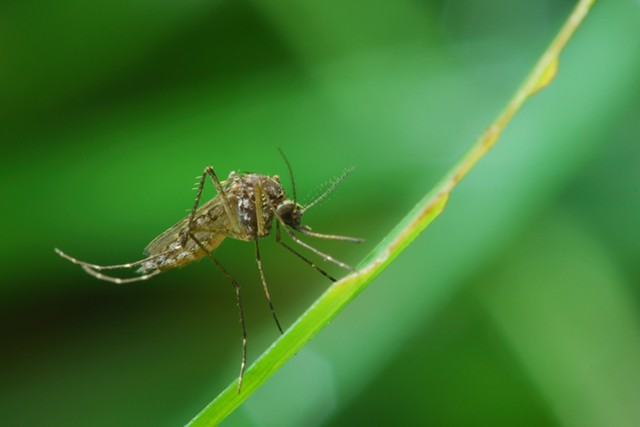
- © Freedomman | Dreamstime.com
- A mosquito
EEE, as it is sometimes called, spreads to humans through the bite of an infected mosquito. It has been detected in bugs collected in Colchester, Alburgh and Swanton over the past few weeks. The Vermont Department of Health says people in Chittenden, Grand Isle and Franklin counties should take extra precautions to protect themselves from mosquito bites.
“Please take mosquito prevention seriously as we continue monitoring this risk,” Health Commissioner Dr. Mark Levine said in a Friday press release.
The rare virus typically causes mild symptoms in humans, such as fever, chills and aches, according to public health officials. But it can also lead to more serious disease, including brain inflammation. Roughly one in three people who develop serious illness will die from it, and many who recover are left with disabilities.
The virus killed two people who contracted it in Vermont a dozen years ago. Last year, an unvaccinated horse was infected and killed.
The U.S. Centers for Disease Control and Prevention says an average of 11 human infections are reported in the United States annually. The agency’s online database shows no confirmed infections in 2024, as of August 6.
The Chittenden County man who fell ill is in his forties, according to the health department. He was admitted to the hospital on July 16 and discharged a week later. The health department said it submitted a related specimen to the CDC and confirmed the infection on August 8.
State officials are boosting efforts to collect and test mosquitoes, the agency said. The state may begin spraying pesticides in areas where infected mosquitoes are identified “should that be deemed the best course of action to protect public health,” the health department said in the release.
The state health department recommends taking six steps to protect yourself from mosquitoes:
- Use insect repellent labeled as effective against mosquitoes.
- Limit your time outside at dawn and dusk, when mosquitoes are more likely to bite.
- Wear long-sleeved shirts and pants when outdoors.
- Cover strollers and outdoor playpens with mosquito netting.
- Get rid of standing water in places such as gutters, tires, play pools, flowerpots and birdbaths. Mosquitoes breed in standing water.
- Fix holes in screens and make sure they are tightly attached to doors and windows.






Comments
Comments are closed.
From 2014-2020, Seven Days allowed readers to comment on all stories posted on our website. While we've appreciated the suggestions and insights, right now Seven Days is prioritizing our core mission — producing high-quality, responsible local journalism — over moderating online debates between readers.
To criticize, correct or praise our reporting, please send us a letter to the editor or send us a tip. We’ll check it out and report the results.
Online comments may return when we have better tech tools for managing them. Thanks for reading.